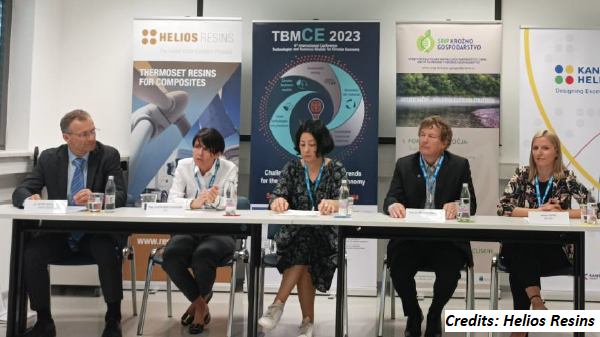At the TBMCE2023 conference in Slovenia, Helios Resin and its member company Helios
TBLUS announced that it will co-invest in a pilot reactor system to process biomass into bio-based resins used in the production of coatings.
TBMCE is an international conference that discusses theoretical models, specific methods and technologies for the transition from a linear economy to a circular economy.

The high complexity of recovery and recycling of polymer materials based on petroleum sources makes their application in sustainable development models difficult. More and more material suppliers are adopting a sequential economic model to promote the sustainable development of enterprises and society, focusing their research and development and future products on the fields of bio-based materials and biodegradable materials.
This time Helios resin transfers technology from the laboratory to pilot-scale reactors, which also represents innovative technology optimization and industrial advancement based on the concept of sustainable development.
It is reported that Helios resin will use waste biomass from the wood and agricultural industry as raw materials to synthesize bio-based resin. Helios
It is hoped that the adoption of resins will significantly reduce the carbon footprint of the polymer industry by increasing the amount of bio-based materials and enable the production of environmentally friendly and human-friendly products.
Helios TBLUS Director Peter
Dr. Venturini said: “Advances in science and technology allow us to develop better quality products that are environmentally friendly and comply with the strict environmental legislation in Slovenia and Europe. We believe that cooperation is an advantage in the demanding European market where we sell our products. An important competitive advantage.”
It is reported that the total investment in this project is slightly more than 323,000 euros, of which the Slovenian state will contribute half as part of SRIP – circular economy operations, and the project partners will contribute the other half.
This investment is an excellent example of linking research to the economy, as well as collaboration between companies, as it will be the first such investment to be made public. The central task is to promote integration and development projects based on the principles of circular economy.

 微信扫一扫打赏
微信扫一扫打赏

